Honeyguide School Leader Support
Primary English Writing Moderation Pack
Primary English Writing Moderation Pack
Couldn't load pickup availability
Tailored specifically for English subject leaders and curriculum leaders, this primary English writing moderation pack offers invaluable guidance, practical tips, and easy-to-use templates. With all the steps you need to plan the moderation meeting plus editable moderation templates for each primary year group, this pack will help you to promote collaboration, ensure consistent assessment practices and support your staff effectively.
Share
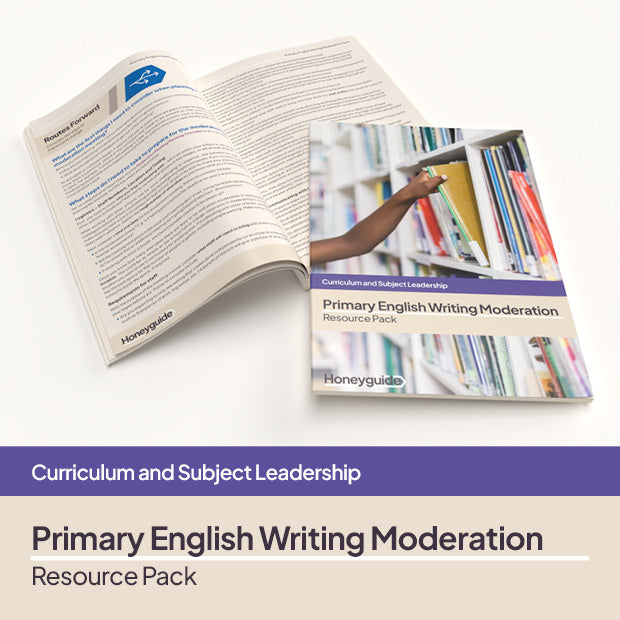
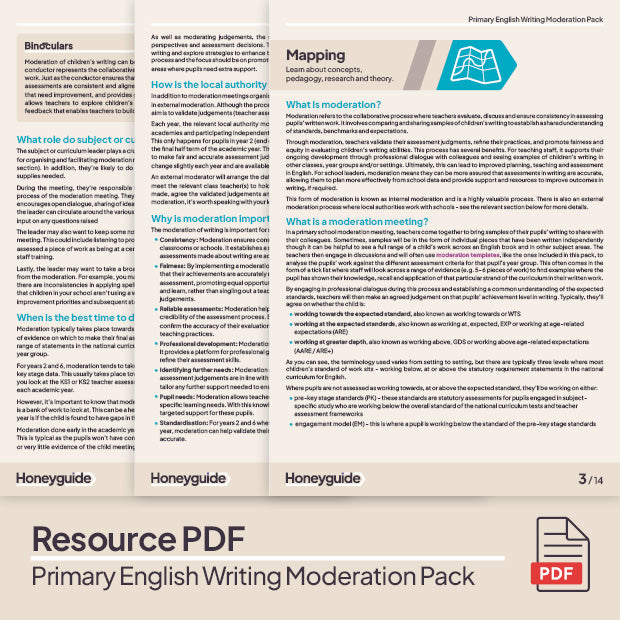
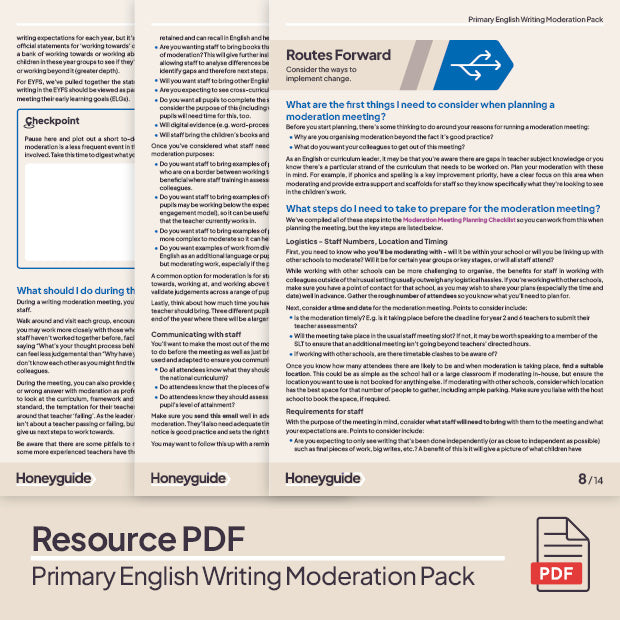
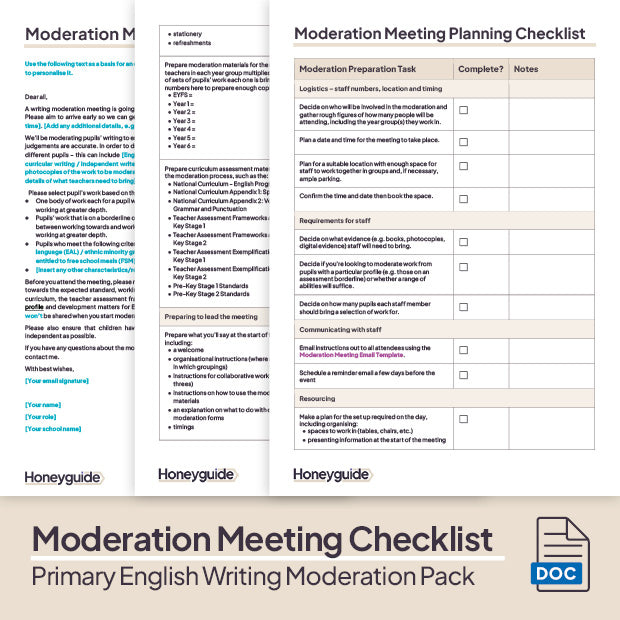
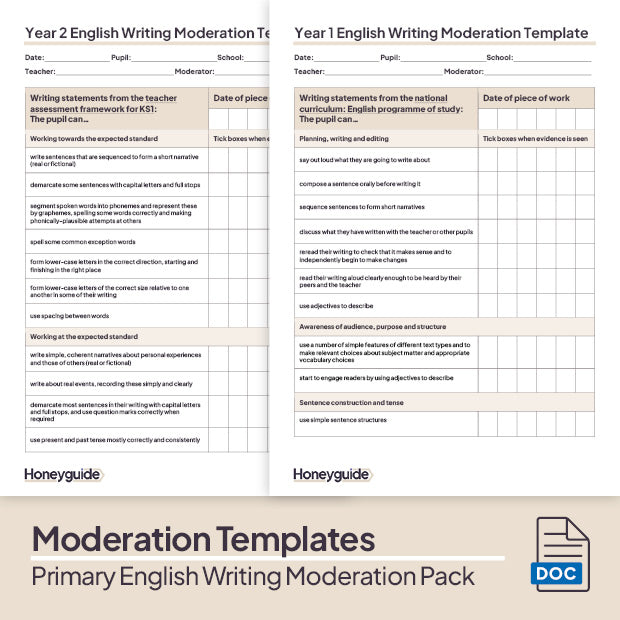
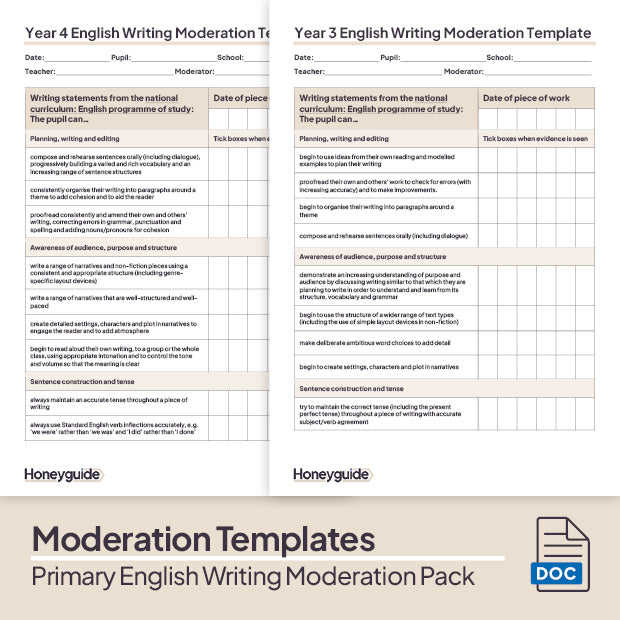
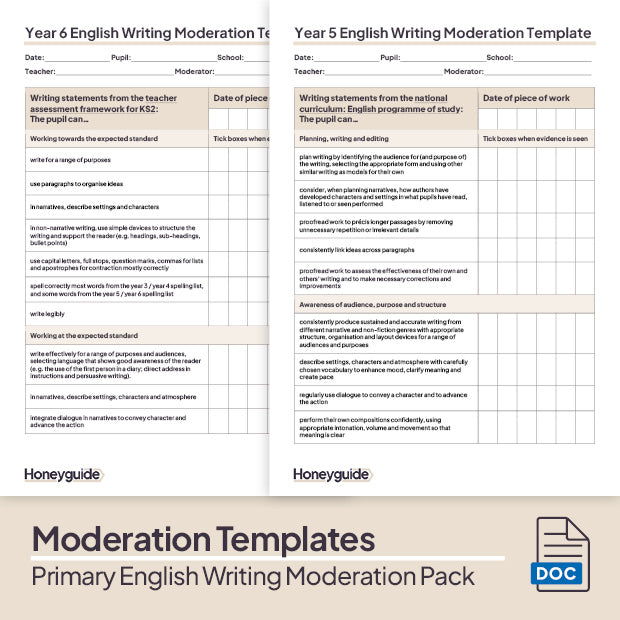
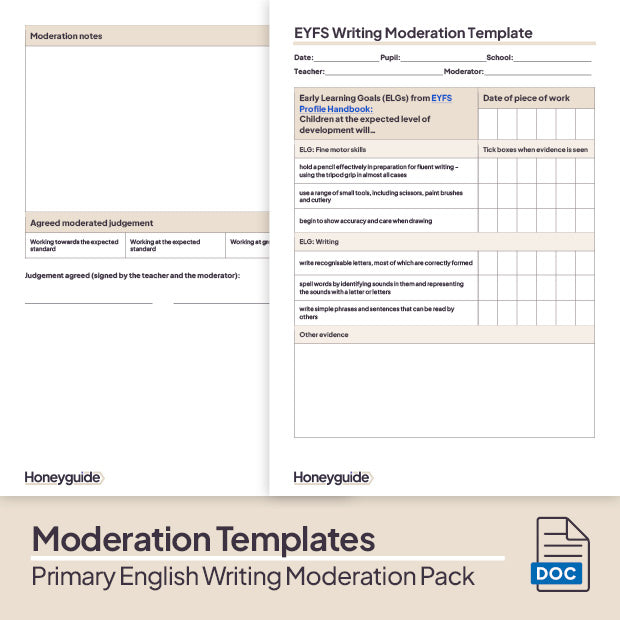
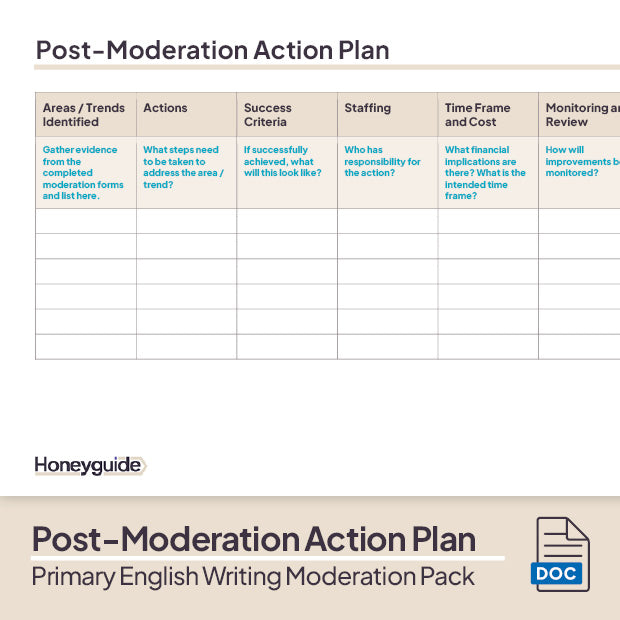
Collapsible content
What's included in this bundle?
A full guidance pack about how to run a primary writing moderation staff meeting, including the steps that an English subject leader or a curriculum leader could take to successfully plan the meeting.
The pack includes a 14-page PDF in full colour containing all the guidance, research and information you need. A low-colour, print-friendly version of the same PDF is also included.
10 fully editable and easy-to-use templates that can be adapted for your setting are also included:
- Moderation Meeting Preparation Checklist
- Moderation Meeting Email Template
- EYFS English Writing Moderation Template
- Year 1 English Writing Moderation Template
- Year 2 English Writing Moderation Template
- Year 3 English Writing Moderation Template
- Year 4 English Writing Moderation Template
- Year 5 English Writing Moderation Template
- Year 6 English Writing Moderation Template
- Post-Moderation Action Plan
This will help you to organise your thoughts, including how to communicate exactly what staff need to bring and how to organise the paperwork you’ll need so there’s no last minute rushing required!
The guidance and resources are built on the KS1 and KS2 teacher assessment framework for pupils in year 2 and 6 respectively, allowing staff to work through each writing moderation checklist and moderate judgements for the teacher assessment data they’ll need to submit. We’ve included the writing exemplification material for KS1 and KS2 to support this process so you can feel confident that staff are on the right track.
For teachers in other year groups, there are moderation statements built from the programme of study in the English national curriculum so staff can moderate their assessment judgements but also look for gaps in learning within each key stage in order to support their lesson planning.
Who will find this resource useful?
English subject leaders, curriculum leaders or those with responsibility for assessment or the quality of education will benefit from this pack to give them head space when planning out vital moderation meetings across the year. Senior leaders and headteachers will also find it useful to support new English subject leaders in running their first moderation meeting.
What questions does this pack have the answers to?
Moderation is a crucial part of the assessment process for writing and for staff CPD in assessment practices. This pack supports school leaders to get the most out of the moderation process so they can be sure that assessment judgements are accurate, next steps for pupils’ learning are identified and staff needs are met by planning for continued development in assessment.
Key questions answered:
- What is moderation?
- What is a moderation meeting?
- How is the local authority involved in writing moderation?
- Why is moderation important?
- What role do subject or curriculum leaders play in moderation?
- When is the best time to do writing moderation?
- How does moderation work for different year groups in a primary setting?
- What do I need to do when planning a moderation meeting?
- What should I do during the moderation meeting?
What else can help me?
Looking to make moderation more effective? We've written a helpful blog to accompany this pack:
We've also got a range of supportive materials for Literacy leads and English co-ordinators:
Good for setting up moderation. I didn't use the email templates but the rest of it was good to organise it and set up the session.









